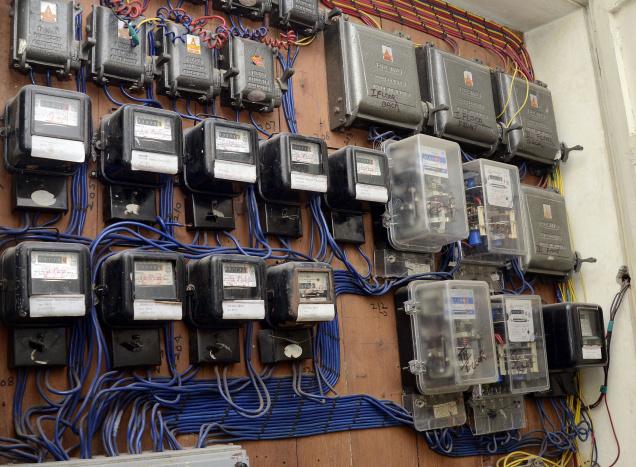Teleology Holdings Ltd., says it is transferring a non-refundable completion deposit of 50 million dollars to the trustees of the bank syndicate presently holding ownership of 9Mobile.
The company made this known in a statement signed by Mr Adrian Wood, Teleology’s Director and pioneer Managing Director of MTN Nigeria.
Wood said the payment underscored Teleology’s financial capability and readiness to revive the organisation, adding it was set to aggregate a 10-point to turn 9mobile around.
“The Nigerian telecom sector is set to witness a new era of innovation and vibrancy as Teleology puts finishing touches to its acquisition of 9mobile, Nigeria’s 4th telecom services provider.
“In the last few days, key executives of the organisation have been deep in meetings with the Nigerian bank syndicate, the regulatory authorities and advisors.
“These meetings have culminated in the signing of the Share Purchase Agreement (SPA) and other contractual documents pertaining to the acquisition.
“Ahead of the March 22 deadline set by the Financial Advisers, Teleology has also transferred a non-refundable completion deposit of 50 million dollars to the trustees of the bank syndicate presently holding ownership of 9Mobile.
“Equally important, Teleology has detailed an ambitious plan of action that will guide its rapid overhaul not only of the network but all aspects of the operations,” he said.
According to Wood, 9mobile is transiting into a new phase that will be defined by optimal value delivery: value to our employees, value to our customers, value to local communities and indeed to all stakeholders.
He added that the new organisation to emerge would be “engineering- led and brand-driven”.
He said in delivering service, it would strive to ensure that 9Mobile operations delivered fulfillment to the customers, empowerment to local communities, protection to the vulnerable, and excellent rewards not only to the shareholders but to all stakeholders.
Wood said the company planned to double the 9Mobile network with new 3G/4G specific cell sites as well as a several thousands of kilometers of fiber optic cable across the country.
He said it would drive a special programme of rural internet coverage, focusing on 4G with broadband access planned for all of Nigeria’s 774 local government areas.
He said youth engagement and employment programmes were also planned with all build contractors, distributors and consultants, while investment in broadband internet access technologies which were completely new to Nigeria was also planned.
“Very importantly, the 9Mobile network will be optimised for high speed and high capacity data including imaging, video, games, music, IPTV and more.
“Any three-point plan or three-dimension idea is naïve and completely missing the scope and complexity of the urgent Nigerian need to be brought into the 21st century broadband era.
“Teleology envisages an increase of 50 per cent in direct employment in the new 9Mobile.
“There is also an active plan to introduce within the first year, several million 4G-capable premium quality smartphones, at exceedingly affordable pricing.
“Nigerians should look forward to a new regime of intensely exciting and innovative brand loyalty rewards programmes, from the new 9Mobile,” he said.
He said that Teleology had entered into an alliance with Safaricom, the largest network operator in East Africa, famous for its global “mpesa” mobile financial services system.
He said the system advances financial inclusion and supports the network with the highest operating efficiencies in Africa.
He said that Teleology’s coming at a period when competition in the Nigerian telecom industry had for some years been limited to price wars between the various GSM companies, clearly, would herald a new era of intense competition and market share.
He said that Teleology was promoted by a group of 12 telecom industry veterans with considerable experience not only in Nigeria and Africa but in the global telecom space as well.
Wood commended the Barclays Africa, the Financial Advisers to the transaction, the Nigerian bank syndicate, the fulsome backing and support of the Nigeria Communications Commission and CBN which made 9Mobile’s survival possible.
He also commended the loyal 9Mobile management and staff who carried on in the face of skepticism, doubt and negative market sentiment.
He assured that additional details including formal relaunch plans would be unveiled in due course.
Teleology emerged as the new owner of 9mobile ahead of Smile, which had been the only other bidder in the final round of the takeover bid.
At the beginning of submission of bids, over 10 bidders had indicated interest in acquiring the mobile network, only five were shortlisted.
These include Bharti Airtel, Globacom, Helios Investment, Smile Communications and Teleology Holdings Ltd.
The acquisition bid was as a result of the Mubadala Development Company of the United Arab Emirates, 9Mobile (formerly Etisalat) largest shareholder, pulling out its investment out of the country.
The pullout was over a protracted 1.2 billion dollars syndicated loan alleged to have been mismanaged by the former board of the telecommunications firm.

